Government proposals could see more products classified as HFSS and sweeping bans on promotions. But will it happen?
At an international conference on obesity in Westminster on Monday 14 January, health secretary Matt Hancock told an all-party group of MPs he wanted to call a halt to “nanny state interventions” on health. Too often, he said, policies had punished the majority, rather than targeted intervention at the minority in need of support.
So how does the health secretary marry that with the government’s latest intervention on obesity, a sweeping crackdown on promotions which threatens to push up prices across thousands of popular supermarket items?
The proposals, which ended up being rushed out the Friday night before the Brexit vote despite having been readied by the DH as far back as September, were welcomed by health campaigners but condemned as “madness” by industry leaders furious at an attack on their right to promote their products, especially given the threat of Brexit.
Critics say it does not get much more “nanny state” than banning promotions of food deemed as junk, especially when the products in the firing line include everyday items such as sandwich meals deals, yoghurts, ready meals and pizzas.
The government’s own research suggests its promotions ban will hit both consumers and food and drink companies in the pocket.
In 2014, when it first drew up the evidence for its war on sugar, Public Health England admitted that with promotions accounting for 40% of food and drink take-home expenditure, a typical household would have to spend 16% more (or an extra £630 a year) if they were at full price.
The DH’s impact study, dated November but, finally published this week, admits businesses face a net cost of at least £80m a year from its plans to restrict the placement of promotions, banning them from aisle ends, front of store and checkouts, a move which it says would also see retailers incur transitional costs of around £30m.
Its plans to ban volume promotions for HFSS products, such as bogofs, would cost retailers £340m in lost profits over the next 25 years and suppliers £110m, says the document.
The promotions proposals
The promotions ban is targeted at key contributors to child sugar and calories intake
Products could include sugar-sweetened soft drinks, breakfast cereals, yoghurts, biscuits, cakes, confectionery and morning goods. Also included are ready meals, pizzas, meat products, savoury snacks, sauces and dressings
The proposals will ban volume and multi-buy promotions on HFSS products as defined by the nutrient profile. Individual product price promotions would not be banned
There is a possible option to allow 20% of a retailer’s volume-based promotional sales to come from HFSS, as long as the 80% is from healthier products
Government will ban key locations in store from HFSS promotions, but thousands of smaller stores could be exempt
Out of home will face a clampdown, including a ban on free refills of sugary soft drinks
Based on assumptions
Yet senior industry sources claim the true financial cost to business of the plans could be much higher, especially as the impact assessment admits much of its estimates are based on sketchy evidence and assumptions.
‘Key assumptions in the analysis include that HFSS products in prominent locations are replaced with other food and drink items, other food and drink items achieve the same sales as HFSS products in these store locations, and losses to manufacturers of HFSS products are offset by an equivalent increase in profits for other manufacturers,’ says the impact assessment.
“It is complete nonsense to assume that banishing products seen as junk will see them replaced by a whole batch of heathy products which enable companies to make up for those sales,” says one leading retailer.
“A category like biscuits is going to find its potential for promotion completely wiped out. What are retailers going to do, replace biscuits on aisle ends with carrots?”
The concerns have been heightened by confirmation that the DH plans to use the so-called nutrient profile model to decide which products are effectively classified as ‘junk’. The model is currently the subject of a controversial review by PHE, following much stricter guidelines about daily consumption of sugar, which The Grocer revealed in March 2018 could lead to thousands more products being classified as HFSS.
Those facing the promotions axe include stars of the PHE’s ongoing reformulation programme such as Petits Filous yoghurts, recently held up as an example of reformulation by PHE, and Lucozade, which has spent millions reformulating its lineup.
Opinion: Promotions consultation reflects government chaos, not commitment
PHE has delayed its final report on the nutrient profile review amid furious calls from industry for it to either be ditched or not used to underpin the promotions ban.
“There are huge concerns among the industry that the nutrient profile review, especially is it is used for the clampdown on promotions, will act as a major disincentive for companies to take part in reformulation,” says one source close to negotiations.
“Under the new model there are very few products that are borderline. There are a long list of products that are not even close to passing the tougher guidelines. They would have to take out 60% or 70% of their sugar levels which is impossible.
“So what incentive is there for those companies to spend millions reformulating their products if they are just going to be banned for promoting anyway? And how is it fair for companies like Lucozade to make their entire product range more healthy only to be told they can’t promote those products?”
Some believe Hancock’s intervention could be significant, especially as the DH has already left the door open to possible compromise.
Under one option in the 12-week consultation, rather than banning all HFSS volume promotions, it would allow 20% of a retailer’s volume-based promotional sales to come from HFSS promotions, as long as the remaining 80% were from healthier products.
Likewise it is looking at the possibility of thousands of smaller retailers being exempt from some of the restrictions.
Read more: Parents face ‘huge confusion’ over crackdown on kids food
“Slipping something out at nine o’clock in the evening on a Friday night is the worst form of cynicism,” says one supplier source. “It wouldn’t surprise me if it did it so it couldn’t be criticised for scrapping it. It’s wrong to waste the time of civil servants like this, let alone the industry.” Certainly the timing of the proposals has gone down like a lead balloon not just with the industry but with many in the Conservative party, especially the Treasury.
But even if they do go ahead, sources point out that the suggested timeframe of the laws coming in late in 2019 is hugely optimistic.
“Just look at what happened with the sugar tax,” says one. “It took 18 months of long negotiation to decide which products would be covered by the levy and that was just one sector.”
Then again, for the government to miss a deadline, or back down amid opposition from MPs, may not in these extraordinary times seem so far fetched at all.



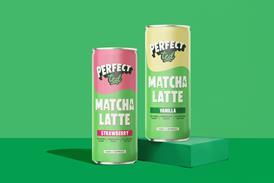



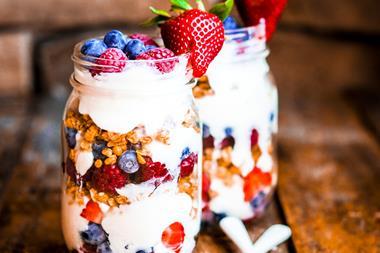


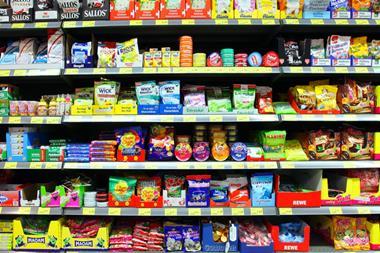

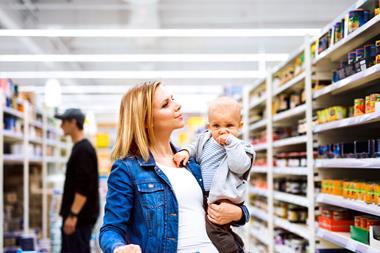




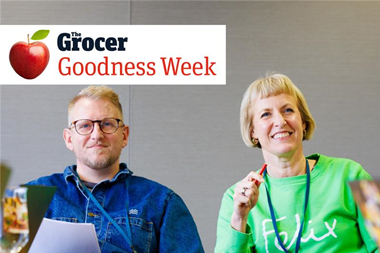

No comments yet